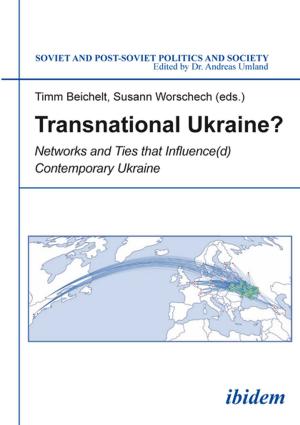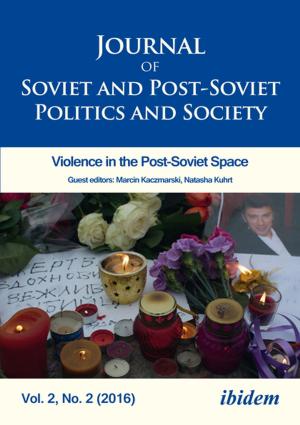International Law and the Post-Soviet Space I
Essays on Chechnya and the Baltic States
Nonfiction, Reference & Language, Law, International| Author: | Thomas D. Grant | ISBN: | 9783838272795 |
| Publisher: | Ibidem Press | Publication: | April 30, 2019 |
| Imprint: | Ibidem Press | Language: | English |
| Author: | Thomas D. Grant |
| ISBN: | 9783838272795 |
| Publisher: | Ibidem Press |
| Publication: | April 30, 2019 |
| Imprint: | Ibidem Press |
| Language: | English |
The regions that once comprised the Soviet Union have been the scene of crises with serious implications for international law. Some of these, like the separatist conflict in Chechnya, date to the time of the dissolution of the USSR. Others, like Russia’s forcible annexation of Crimea and intervention in Ukraine’s Donbas, erupted years later. The seizure of Estonia, Latvia, and Lithuania, which took place long before, would trouble Soviet-western relations for the Cold War’s duration and gained new relevance when the Baltic States reemerged in the 1990s. The fate of Ukraine notwithstanding, the Budapest Memorandum of 1994 complicates future efforts at nuclear nonproliferation. Legal proceedings in connection with events in the post-Soviet space brought before the International Court of Justice and under investment treaties or the UN Convention on the Law of the Sea may be steps toward the resolution of recent crises—or tests of the resiliency of modern international law.
The regions that once comprised the Soviet Union have been the scene of crises with serious implications for international law. Some of these, like the separatist conflict in Chechnya, date to the time of the dissolution of the USSR. Others, like Russia’s forcible annexation of Crimea and intervention in Ukraine’s Donbas, erupted years later. The seizure of Estonia, Latvia, and Lithuania, which took place long before, would trouble Soviet-western relations for the Cold War’s duration and gained new relevance when the Baltic States reemerged in the 1990s. The fate of Ukraine notwithstanding, the Budapest Memorandum of 1994 complicates future efforts at nuclear nonproliferation. Legal proceedings in connection with events in the post-Soviet space brought before the International Court of Justice and under investment treaties or the UN Convention on the Law of the Sea may be steps toward the resolution of recent crises—or tests of the resiliency of modern international law.















